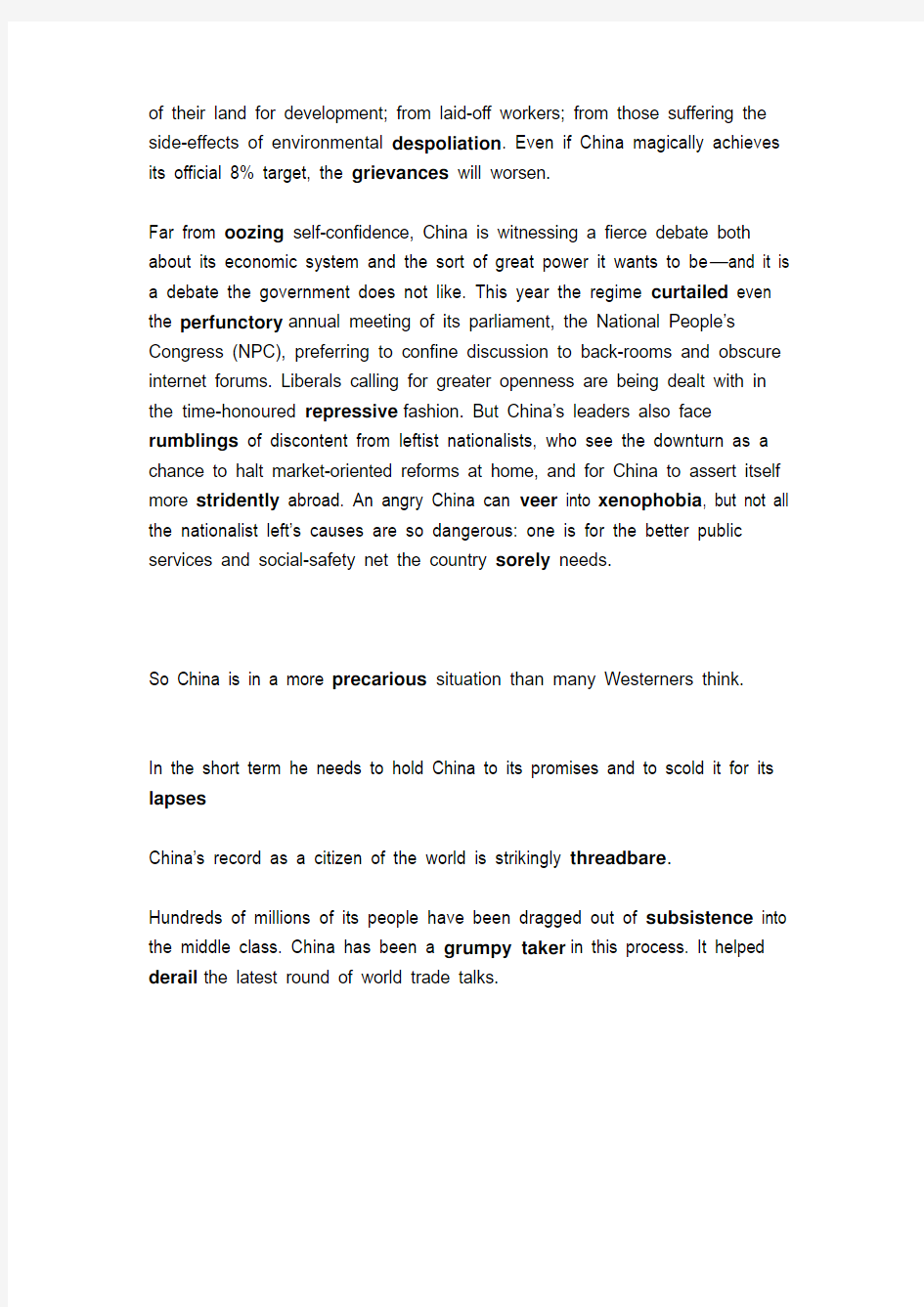Economist里面的GRE单词


Economist里面的GRE单词
早起看了篇Economist文章,发现无数GRE单词。
看来背单词真的有好处啊!
The new world order
How China sees the worldMar 19th 2009
From The Economist print edition
And how the world should see China
https://www.wendangku.net/doc/8a2121474.html,/opinion/displayStory.cfm?story_id=13326106&sour ce=hptextfeature
Excerpt
For many in China even the buffeting by the gale that has hit the global economy has a bracing message. But it has lacked the one feature it needed fully to satisfy the ultranationalist fringe: an accompanying decline of the West. Now capitalism is in a funk in its heartlands. Europe and Japan, embroiled in the deepest post-war recession, are barely worth consideration as rivals. America, the superpower, has passed its peak. Although in public China’s leaders eschew triumphalism, there is a sense in Beijing that the reassertion of the Middle King dom’s global ascendancy is at hand.
He talks of China as a “great power” and worries about America’s profligate spending endangering his $1 trillion nest egg there. Incautious remarks by the new American treasury secretary about China manipulating its currency were dismissed as ridiculous; a duly penitent Hillary Clinton was welcomed in Beijing, but as an equal.
This not only worries the Europeans, who, having got rid of George Bush’s unipolar politics, have no wish to see it replaced by a Pacific duopoly, and the Japanese, who have long been paranoid about their rivals in Asia.
Already there are tens of thousands of protests each year: from those robbed
of their land for development; from laid-off workers; from those suffering the side-effects of environmental despoliation. Even if China magically achieves its official 8% target, the grievances will worsen.
Far from oozing self-confidence, China is witnessing a fierce debate both about its economic system and the sort of great power it wants to be—and it is a debate the government does not like. This year the regime curtailed even the perfunctory annual meeting of its parliament, the National People’s Congress (NPC), preferring to confine discussion to back-rooms and obscure internet forums. Liberals calling for greater openness are being dealt with in the time-honoured repressive fashion. But China’s leaders also face rumblings of discontent from leftist nationalists, who see the downturn as a chance to halt market-oriented reforms at home, and for China to assert itself more stridently abroad. An angry China can veer into xenophobia, but not all the nationalist left’s causes are so dangerous: one is for the better public services and social-safety net the country sorely needs.
So China is in a more precarious situation than many Westerners think.
In the short term he needs to hold China to its promises and to scold it for its lapses
China’s record as a citizen of the world is strikingly threadbare.
Hundreds of millions of its people have been dragged out of subsistence into the middle class. China has been a grumpy taker in this process. It helped derail the latest round of world trade talks.
